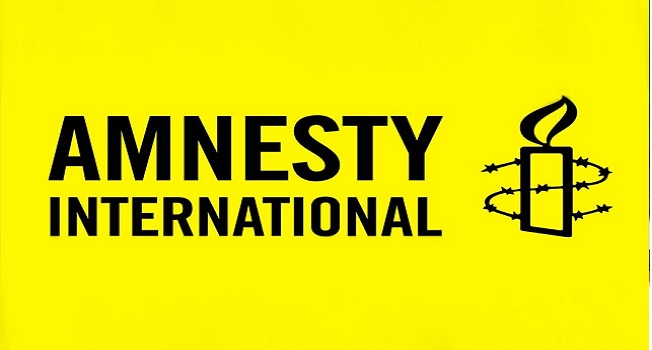Amnesty International Nigeria has raised concerns over ongoing human rights abuses by the Nigeria Police, including unlawful detention, extortion, torture, and sexual violence, four years after the October 2020 #EndSARS protests.
The nationwide #EndSARS movement, which occurred between 1st and 20th October 2020, called for an end to police brutality, particularly from the disbanded Special Anti-Robbery Squad (SARS). The protests ended abruptly on 20th October 2020 following the loss of lives at the Lekki Tollgate in Lagos, after an alleged military shooting.
In a statement on Sunday, the human rights organisation urged the Nigerian government to address ongoing violations by the police, stating that such abuses continue to fuel impunity and leave citizens vulnerable to the same injustices that sparked the #EndSARS protests.
Isa Sanusi, Country Director of Amnesty International Nigeria, said, “We continue to receive, almost daily, reports of human rights violations by the police across Nigeria, including unlawful detention, extortion, torture, sexual violence, and, in some cases, extrajudicial killings.”
He added, “The Nigerian authorities still have the opportunity to reform the police into an institution with zero tolerance for human rights violations. This chance must not be squandered by failing to hold the police accountable for these abuses. We are gradually returning to the horrific pre-EndSARS era where police officers act with impunity.”
Sanusi called on the government to fulfil its promises of addressing police brutality to comply with both Nigerian and international law, emphasising that all atrocities linked to #EndSARS, both before and after, must be investigated and those responsible brought to justice.
Amnesty International also highlighted several cases of extrajudicial killings by police officers since the protests. Among the incidents was the killing of 25-year-old salesgirl Jumoke Oyeleke during the Yoruba Nation rally in Lagos in July 2021, and the deaths of other victims such as Mosurat Ojuade (18), Paul Durowaiye, and lawyer Bolanle Raheem, among others.
The organisation also criticised the lack of transparency regarding a leaked memo from July 2023, which indicated Lagos State’s approval for the mass burial of 103 victims from the #EndSARS protests, whose identities remain undisclosed, with no progress made in bringing those responsible to justice.
Of the 36 states, only Lagos has made public the findings of its #EndSARS judicial panel, while just two states—Ekiti and Osun—along with the FCT, are known to have fully compensated survivors and families of victims. Meanwhile, seven states, including Borno, Jigawa, Kano, Kebbi, Sokoto, Yobe, and Zamfara, have yet to establish any form of judicial panel.


